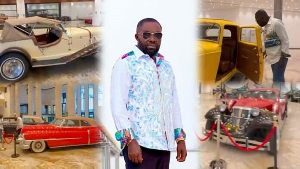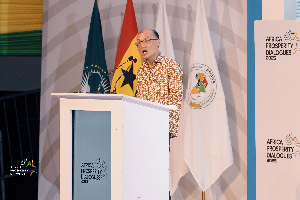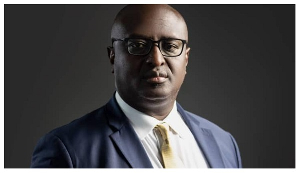Professor Stephen Adei, former Rector of the Ghana Institute of Management and Public Administration (GIMPA), has said failure on the part of the Electoral Commission to project neutrality in the conduct of its mandate, especially with regards to the 2016 general elections, can court trouble in the country.
"It is important that the actions or inactions of the EC should not project its lack of neutrality, as failure to implement measures to reduce greatly the possibility of the elections being rigged,” will bring “dire consequences in this country," he advised.
Professor Adei, who was delivering a lecture at the All Nations University College during the university's Founders’ Day celebration in Koforidua, indicated that: "It is a responsibility of anybody in the EC, who loves Ghana, to do what will ensure peace.
"Unless we put in place mechanisms to guarantee that only genuine registered Ghanaians vote, especially in the strongholds of the major parties, we are courting trouble.”
According to the former GIMPA rector, though having a perfect election will be a mirage, there are some simple measures that the EC could undertake to guarantee the integrity of electoral processes in the November polls.
He implored the EC to consider proposals from all quarters such as former First Lady Nana Konadu Agyeman-Rawlings' suggestion of going fully electronic, a move, he said India was willing to help out with.
Prof Adei also suggested the EC put in a mechanism where results from every polling station are put on a nationally verifiable database and projected on a screen in the regional centres for all to see.
He asserted that the technology to run credible elections was available and inexpensive, adding that even if the EC required additional four billion Ghana cedis to ensure credibility, there are Ghanaians and development partners willing to contribute towards achieving that.
Lecturing on the topic: ‘Leadership and Nation Building’, Prof Adei said the failure of the government to implement the recommendations of the Constitution Review Committee is to blame for the current pressure being brought to bear on the EC.
He reminded leaders of the country, including leadership of the EC and political parties that the ordinary Ghanaian citizen looked up to them for positive leadership, and that they should endeavour to make a positive contribution towards nation-building.
General News of Tuesday, 23 February 2016
Source: classfmonline.com

















